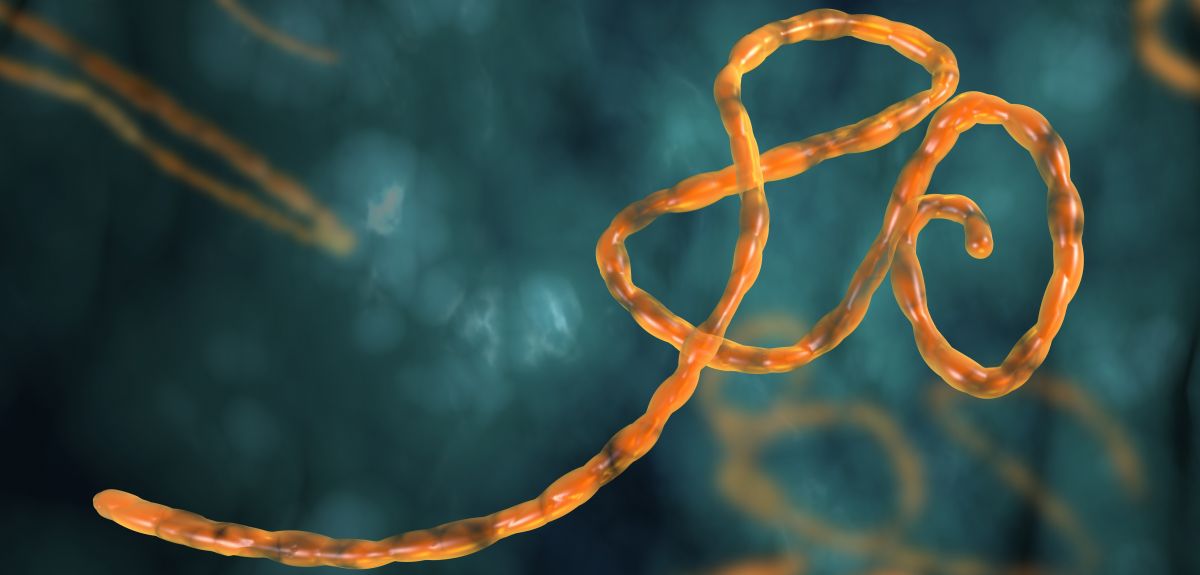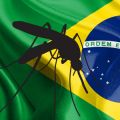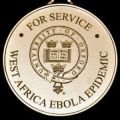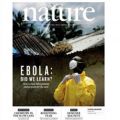
Image credit: Festa, via Shutterstock
Clinical trial for experimental Ebola drug publishes results
Results of the Wellcome Trust funded trial of the experimental anti-Ebola drug TKM-130803 have been published today in PLOS Medicine. Using a novel approach designed to get rapid indications of a drug's effectiveness, the trial showed that at the dose given the drug did not improve survival compared to historic controls.
TKM-130803 interferes with the production of two essential Ebola virus proteins and has been shown to improve survival when given to monkeys experimentally infected with Ebola virus. Scientists from the University of Oxford and Sierra Leone worked with the humanitarian organisation GOAL Global, the World Health Organization, and collaborators from a number of other institutions to test whether TKM-130803 could improve survival in adults with Ebola infection.
The researchers used a new approach to generate early evidence of effectiveness or ineffectiveness. This method can be used as a tool to screen potential therapies and determine the need for further studies (including randomised controlled trials) during an epidemic. The approach meant that the study was quickly able to reach a pre-defined point to stop the trial.
The study took place at the GOAL Ebola Treatment Centre in Port Loko, Sierra Leone between 11 March and 15 June 2015. Patients with laboratory-confirmed Ebola who volunteered to participate in the trial were given a once daily infusion of TKM-130803 for up to seven days. After 14 patients had received TKM-130803 the pre-specified statistical endpoint was reached and the trial was stopped. Out of twelve patients given TKM-130803 who survived the first 48 hours, nine died and three survived. However, most of the patients entering the Ebola Treatment Centre at the time the study was enrolling, which included those given TKM-130803, had very severe Ebola disease, so further studies are needed to assess if the drug might provide a benefit in patients with less severe disease.
Professor Peter Horby, Chief Investigator of the study, said: 'Thanks to the tremendous efforts of everyone involved we now have a much clearer picture of the potential of this drug. We are obviously disappointed that it does not seem to offer a benefit to patients with severe Ebola but it remains to be seen if the drug will help those with less severe illness. The drug was well tolerated by all of the patients and we’ve learnt a lot about giving the drug to patients with Ebola. Once we get the results of on-going tests of the drug concentration in the patients’ blood we will have a better understanding of the optimal dose for any further studies.'
More about the trial
The primary outcome measured in this trial was survival to 14 days after admission, excluding patients who died within 48 hours of admission. The survival of the trial participants was compared to survival in 1,820 adult Ebola patients that had occurred earlier in the same outbreak. Based on this historical data, a survival probability in TKM-130803 recipients greater than 55% at day 14 after admission was set as a threshold for concluding that the drug was promising. If the trial reached a point where it was very unlikely that evidence would be found that survival was more than 55% the trial would be stopped.
After 14 patients had received TKM-130803 the pre-specified point was reached and the trial was stopped. Out of twelve patients given TKM-130803 who survived the first 48 hours, nine died and three survived. The probability that TKM-130803 recipients who survived 48 hours would survive to day 14 was estimated at 27%.
Further analyses are underway to measure the concentration of drug present in the patients’ blood with the aim of relating this to the amount of virus in their blood and their clinical outcome.
The paper, Experimental treatment of Ebola Virus Disease with TKM-130803: A single arm phase 2 clinical trial (DOI: 10.1371/journal.pmed.1001997), is published by PLOS Medicine.
The data from the trial will be accessible to appropriately qualified researchers by application to the Infectious Diseases Data Observatory (IDDO) Ebola Data Access Committee.
 British children are growing taller but not for the right reasons
British children are growing taller but not for the right reasons
 Expert Comment: The war in the Gulf
Expert Comment: The war in the Gulf
 International Advisory Board to strengthen global leadership in primary care
International Advisory Board to strengthen global leadership in primary care
 Expert Comment: Church-to-mosque conversions grab headlines, but is funding the real crisis?
Expert Comment: Church-to-mosque conversions grab headlines, but is funding the real crisis?
 Fight against little-known Zika virus applies lessons from Ebola
Fight against little-known Zika virus applies lessons from Ebola
 Ebola medals for research team
Ebola medals for research team
 Ebola drug triallist advocates international cooperation to beat the next outbreak
Ebola drug triallist advocates international cooperation to beat the next outbreak